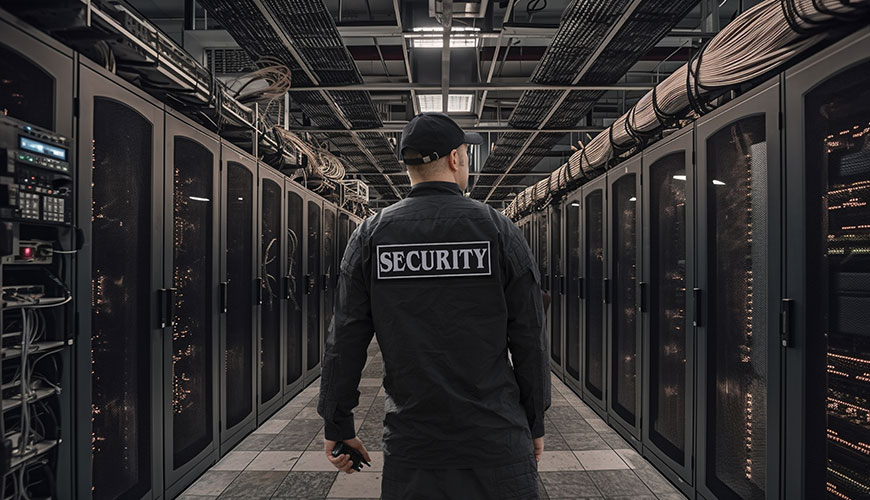How Security Guards Handle Sensitive Information?
Securing sensitive information is more critical than ever in today's ever-expanding digital infrastructure. Protecting physical and digital assets is crucial with the rise of cyber threats and the growing reliance on data centers. Security guards, especially those specializing in data center security services, play a vital role in preventing unauthorized access and safeguarding confidential information. But how do these professionals handle sensitive information in environments requiring the highest security level?
Critical Responsibilities of Data
Center Security Guards:
- Monitoring Access
Points: One of the primary duties of a data center security guard is
to control and monitor access points. They ensure that only authorized
personnel can enter sensitive areas, reducing the risk of data breaches.
- Strict ID
Verification: Security guards use strict ID verification processes to
ensure employees and visitors can access restricted areas. This is
critical in preventing unauthorized access to sensitive information.
- Surveillance Systems: Security guards also manage surveillance systems, which include cameras, alarms, and sensors to detect any suspicious activity. These systems allow security guards to respond quickly and prevent potential threats from materializing.
Preventing Unauthorized Access:
Preventing unauthorized access to security guard services is essential
to keeping sensitive data safe. Guards stationed at data centers are trained to
follow strict protocols to ensure that no one can enter restricted areas
without proper clearance. Additionally, they employ advanced technologies such
as biometric systems, key cards, and security tokens to minimize unauthorized
entry risks.
- Physical Barriers:
Data centers often have multiple layers of physical barriers, including
gates, fences, and locked doors. Security guards ensure these measures are
working effectively to prevent breaches.
- Regular Audits and Reports: Security guards conduct routine checks and audits to ensure that security protocols are followed. These reports help identify potential vulnerabilities, allowing for timely corrective actions.
How do Security Guards Manage Information Flow?
The security guards' role isn't just about keeping unauthorized
individuals out; they are also responsible for managing the flow of sensitive
information. In doing so, they:
- Control Data Transfers:
Security guards supervise physical data transfers, such as hard drives and
other media, to ensure no unauthorized copying or tampering.
- Secure Confidential Documents: Physical documents containing sensitive data are often stored in secure areas. Guards monitor these areas and ensure only authorized personnel can access them.
Why Training Matters?
Security guards handling sensitive information must be well-trained. Data center security services ensure these professionals are well-versed in cybersecurity protocols, crisis management, and handling breaches. Their training prepares them to act quickly and decisively in emergencies, minimizing the damage to the organization's information infrastructure.
Staying Ahead of Evolving Threats:
In today's rapidly evolving security landscape, relying solely on technology is not enough. Security guards play an indispensable role in ensuring that sensitive information remains secure. Their presence, combined with cutting-edge technology, helps mitigate risks and secure data centers against evolving threats. With the increasing importance of data centers, the need for robust, well-trained security personnel will only continue to grow.
In conclusion, preventing
unauthorized access to security guard services is integral to
data center operations. By following strict protocols and leveraging advanced
technologies, security guards are essential in protecting sensitive information
and preventing costly data breaches. As the digital age progresses, having
trusted data center security guards is more critical than ever.


Comments
Post a Comment